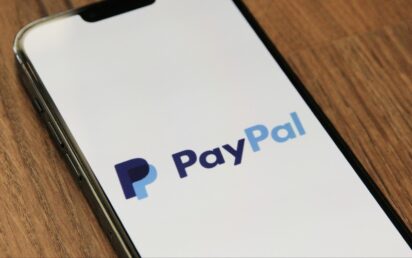There has been a lot of discussion surrounding the adoption of cryptocurrencies in the US, but progress has been slow. A major fintech company has decided to introduce cryptocurrency assets to its users, marking the first instance of a significant US financial institution making such a move.
In August 2023, PayPal unveiled a stablecoin linked to the US Dollar, known as PayPal USD (PYUSD). This cryptocurrency was created to revolutionise the way we conduct crypto and web3 payments. It is safe to assume that this announcement has generated increased global interest in this payment platform. Early indications were positive, as the shares of this fintech giant immediately saw a 2% increase following this development.
The overall utility of this payment platform is expected to expand, particularly within the online casino industry. Preferred by players for its ease of funding and withdrawals, PayPal is accepted at the majority of reputable online casinos. Up until recently though, PayPal has exclusively supported fiat and select cryptocurrency transactions. However, today, when you pick a PayPal casino, you will now have the additional option to settle payments in PYUSD.
Regulatory Expansion and PayPal’s Vision
The growth of PYUSD is poised to expand even further once the European Banking Authority (EBA) finalises its regulations in 2024. The EBA has previously stipulated that stablecoins backed by currencies must offer users the option of full redemption of their assets. However, stablecoins backed by assets will be redeemed at market prices.
“The transition to digital currencies necessitates a stable instrument that is inherently digital and seamlessly linked to fiat currencies like the US dollar,” remarked Dan Schulman, President and CEO of PayPal. “Our commitment to responsible innovation, compliance, and our track record of introducing new experiences to our customers provide the groundwork needed to contribute to the growth of digital payments through PayPal USD.”
PYUSD: Features and Accessibility
According to PayPal, this stablecoin will facilitate smooth virtual payments sent directly to developers. This trend is spreading far and wide, with financial service providers looking for ways to stay at the forefront. As an example, in Spain, PSF, a mobile payment solution, is being integrated as a payment option for League of Legends purchases.
PYUSD can be easily converted to US dollars and is backed by dollar deposits, cash equivalents, and short-term US Treasuries. PayPal USD is issued by Paxos, which also serves as the company’s brokerage partner for handling cryptocurrency buying and selling. Paxos is well-regarded in the stablecoin ecosystem, having previously issued the Binance stablecoin, BUSD. However, the New York State Department of Financial Services issued an order for the web3 company to cease issuing BUSD.
Since September 2023, Paxos has been publishing monthly reserve reports for PayPal USD. These reports offer precise details regarding the composition of the stablecoin’s reserves. Additionally, Paxos will provide third-party attestations of the value of PayPal USD reserves. These attestations will be conducted by a third-party accounting firm in compliance with standards established by the American Institute of Certified Public Accountants (AICPA).
PayPal’s stablecoin will be readily accessible to consumers, merchants, and developers. Following the launch of this stablecoin, customers who acquire the asset will be able to:
- Transfer PYUSD between their PayPal accounts and external wallets.
- Conduct peer-to-peer payments with PYUSD.
- Make purchases using PayPal USD, if available at the checkout page.
- Convert other supported cryptocurrency assets to and from PYUSD.
Despite being the sole stablecoin on PayPal’s network, this cryptocurrency leverages the platform’s expertise in payment processing and blockchain programmability. Furthermore, PYUSD is an ERC-20 token, making it accessible to a large and continually expanding community of developers, web3 applications, and external wallets. As more web3 exchanges adopt this stablecoin, it will be increasingly utilised to enhance the PayPal ecosystem’s functionality.


